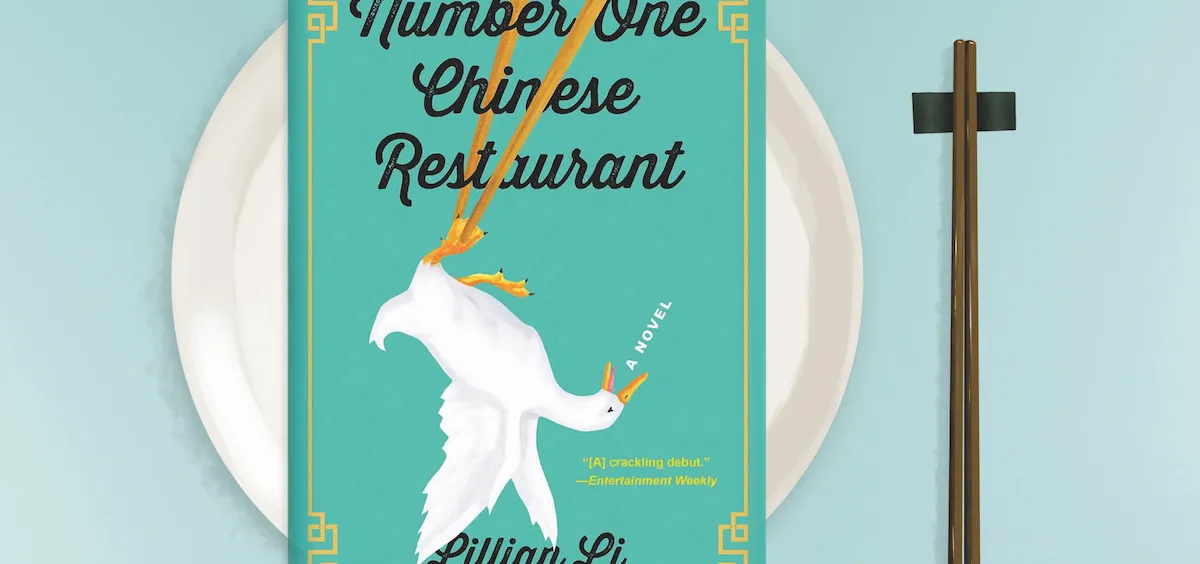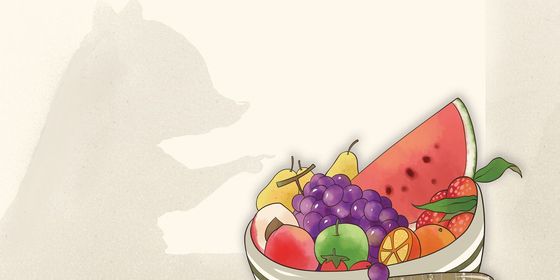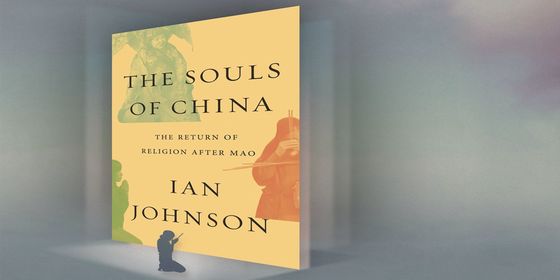A Chinese eatery is a prism for intergenerational love and loss in Lillian Li’s stirring fictional debut
Every life can be defined by two great love stories, says philosopher Alain de Botton. The first, the quest for sexual love, is the staple of music and literature. “The second—the story of our quest for love from the world—is a more secret and shameful tale, yet this second love story is no less intense than the first. There is heartbreak here too.”
Lillian Li’s debut novel Number One Chinese Restaurant is just such a carefully woven brocade of love, near and missed—the quiet and caustic simmering of dreams alongside hot and sour soup.
In the first few pages, the stage is set: In the belly of the red-draped Beijing Duck House in Maryland, owner Jimmy Han adjusts his false curtains. “He made sure the fabric still hid the blank wall behind. People preferred to believe in windows they couldn’t see.” The remaining pages gaze into each character’s quest, palms pressed against the various windows into their lives—some opening, some shutting, others pure fantasy.
The staff, writes Li, are “all friends, if one defined friendship as the natural occurrence between people who, after colliding for decades, have finally eroded enough to fit together.” Between the sweltering kitchen, filled with cooks turning dials with their knees, and the maze-like dining room where matrons squabble over the check, Li paints the sweet and cruel accumulation of years into a life—if not the one that the characters imagined, then one that they can learn to accept.
The unassuming Rockville restaurant becomes the prism through which individual pursuits are endlessly diffracted, from teenage passions to the duty-bound companionships of old age. Drama arises less from external scenery than the shifting internal lighting through a flitting first-person consciousness.
There is the duo Jimmy and Johnny Han, who inherit their father’s restaurant alongside their Cartier-loving mother Feng Fei; the old and diabetic waiter Ah-Jack; the “equal parts smart and spineless” manager Nan; her chain-smoking teenage son Pat; and the ambitious real estate agent Janine. Each has a stake in the restaurant’s future, and its floors become a battleground for survival and meaning.
To categorize this as an immigrant story, or a coming-of-age tale, would do the novel injustice. Like Fences, the 1985 August Wilson play-turned-film about a middle-aged black sanitation worker providing for his family, Number One achieves a tenor of slow asphyxiation amidst the mundane.
While Fences’ Troy Maxson copes with frustration by inexplicably setting out to build a literal and metaphorical fence in his backyard, Jimmy Han sets out to rebrand his father’s restaurant. “So f-ck his father’s legacy. F-ck his mother’s too, ” Jimmy thinks to himself. “Jimmy’s new restaurant would not have such cheap illusions. Or clumsy, broken booths. Or incompetent waiters. His new restaurant would be as polished as the silver chopsticks he’d already bulk-ordered.” Jimmy dreams up a new menu with recipes like “miso-wasabi frog legs” and “grilled ginger tofu,” which, laughably, he has trouble convincing long-time patrons to order over pork lo-mein.
The most artful aspect of Li’s writing is her ability to compress and expand an ever-fluid sense of time; in a few words, moments elegantly churn into years, and history is crystallized into a second. On a lazy afternoon, Nan watches a youthful Ah-Jack playfully blow on a trail of crumpled napkins on the restaurant bar, and the moment blooms into decades of romantic yearning for the older waiter. Heartrending minutiae of routines and habits become the scaffolding for the winding twists of fate. At home, Pat solemnly watches “a frozen scallion pancake make circles in the microwave.” Nan thinks back to the butterflies she feels for Ah-Jack and shakes her head: “to fall in love with a man who threw away watermelon with pink meat still clinging to the rind—it was incomprehensible.”
In the world of Number One, strategic restraint is the refrain to which characters live their lives. Nearly every emotional outburst is a quick-burning flame (literally, sometimes) that threatens a carefully wrought stability forged through generations of sleepless nights. In this sense, the logic of the novel is steeped in the Chinese mania for legacy: Whether in words or actions, recklessness breaks what cannot be easily repaired.
Declarations of passion are quickly shown to be foolish, even embarrassing, afterward. Jimmy, unable to trust the intentions of a suitor, thinks to himself as he leaves: “He wasn’t, in the end, that generous. Generosity, after a certain point, was just another word for self-destruction.” Attempts at love across generations, like parallel trains, hurtle past each other into the fog of culture and language. After the always-working single mother Nan picks up her school-skipping son Pat, she offers, “I get you Slurpee.” She has driven around for half an hour to find a 7-Eleven, as an apology for slapping his face. “In case you thirsty.”
What remains is profound tenderness. The kind of love most lyricized by Li is far from Hollywood romance: There are not one, but three feet-washing, toenail-clipping, and sock-dressing scenes. If the standard romance dedicates paragraphs to first kisses, for Ah-Jack, ecstasy comes when he puts on a pair of compression socks newly purchased by his elderly wife. “He struggled to pull the socks on, expecting the squeeze to be painful, but instead he was surprised by how well supported his feet and legs suddenly felt. The aching muted. Ah-Jack wiggled his toes. He pictured his wife speaking to a salesperson, struggling to overcome her shyness to ask about the benefits of these socks.”
Meanwhile, when middle-aged Jimmy offers to wash Janine’s feet, she jokes, “You have a foot fetish?” Li nimbly toes a line across which tones change markedly and convincingly between the generations. While the elders speak primarily through wordless gestures, two generations down, American-born Pat finds comfort in commiserating about summer jobs with Johnny’s daughter Annie, a college freshman. “I hate the way she sounds,” Pat says to Annie about working with his mother. “The waiters aren’t real people on the floor,” Annie responds, “More like cartoons.”
Bound by love, the characters struggle to resist the legacies and narratives they have been given. Jimmy considers how the Beijing Duck House seems to others: “He knew what Annie had seen from her hostess stand. A garish Chinese restaurant. But if she’d looked a little harder, she would see what a magical establishment her grandfather had built. Almost every waiter had a house in a nice neighborhood because of the Duck House. Waiters who had never finished high school, who came to America with nothing, now had savings, healthcare, SAT tutors for their children.”
To Jimmy’s generation, the Duck House is their legacy and pride; for their offspring, it is a suffocating shadow to escape from. To the outside world, it is a brick building on the side of a suburban highway; to those who have spent their lives there, it is the backdrop to overlapping histories and longings. As Jimmy’s mother reminds him, “You are the stories people tell of you.” He has never agreed.
***
THREE OTHER RECENTLY PUBLISHED BOOKS
Life
Gao Jialin is content with his job as a village schoolteacher—until he’s replaced by the son of the local Party secretary. Resentful of rural life, Gao strives to make it in the big city, only to meet a strange twist of fate. Written by the renowned late author Lu Yao, Life is set in the 1980s, when the urban-rural divide began to widen, and is considered one of the most influential novels about the impact of Reform and Opening Up.
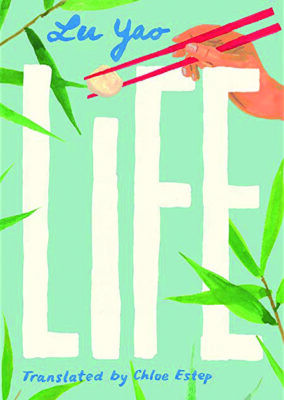
Waste Tide
In the heavily polluted recycling community of Silicon Isle, off China’s southeastern coast, Mimi, a “waste girl,” occupies the bottom rung of society with thousands of other migrant waste workers. Meanwhile, three families control the island’s wealth. The arrival of a dangerous shipment stirs up conflict in this futuristic cyberpunk landscape. Author Chen Qiufan grew up near Guiyu, Guangdong province, the world’s largest e-waste recycling center and the story’s inspiration.
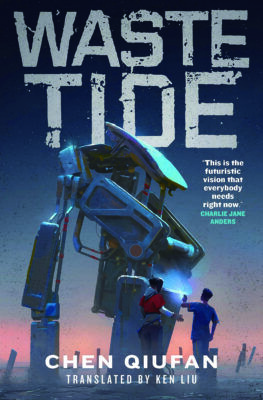
The Redemption of Time
Written by sci-fi stan Baoshu, translated by Ken Liu, this “paraquel” to Liu Cixin’s renowned trilogy follows the terminally ill Yun Tianming during the Crisis Era. When Yun’s frozen brain is sent to intercept the Trisolaran First Fleet, he manages to pass valuable information back to Earth, yet ends up betraying humanity. Now in a cloned body, Yun embarks on a new adventure of redemption. For better or worse, the book ties up many loose ends in the original trilogy and is a must-read for Three Body fans.
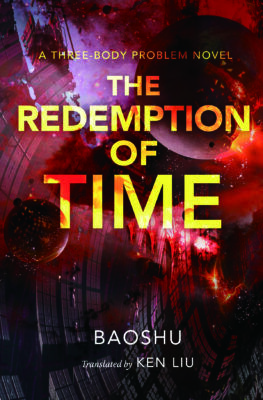
Number One Love is a story from our issue, “Wild Rides.” To read the entire issue, become a subscriber and receive the full magazine.





